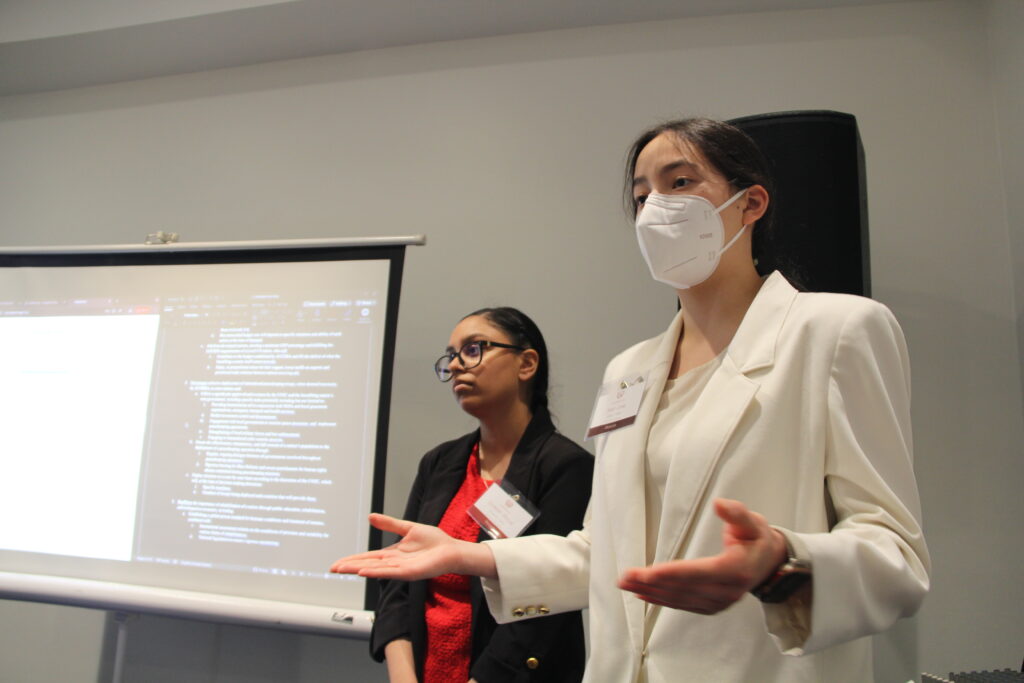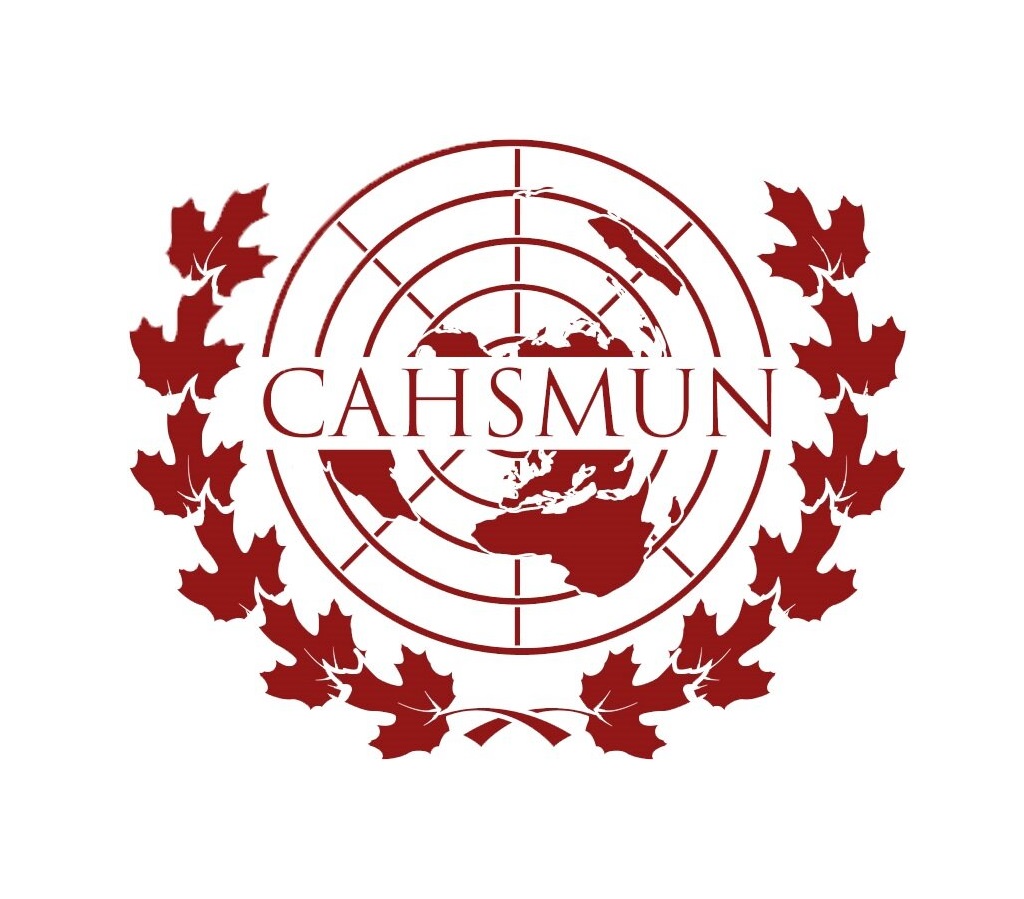In a battle in which two boss mobs fight for the crown, there can only be one victor in the end, for neither can live while the other survives.
Zi Jia (Jacey) Chen ∙ CBC News ∙ Posted: Apr 12, 2024 10:00 PM PST | Last Updated: 1 hour ago

The Delegate of Japan answers another representative’s question during resolution paper presentations.

The battle between rival gangs can be fierce, but the battle for votes during the presentation of bloc resolution papers can be deadly.
In the waning hours of the United Nations Security Council’s fifth committee session, the futures of individuals and nations alike are in question as both blocs try to win delegates’ hearts — and votes.
The United Nations Security Council (UNSC) is one of six major organs of the United Nations (UN), with a task is to ensure international peace and security. In this series of meetings, members assembled to debate the logistics of strengthening borders, working with other United Nations bodies to achieve their goals, and creating funds for developing countries to better deal with criminal organizations and gang violence.
In the end, No Time For Crime and Nameless were formed. In addition to the five permanent members of the Security Council, Gabon, Switzerland and Albania are the other members of No Time For Crime; sponsors include the USA, UK, Russian Federation, and Albania, whereas signatories include China, France, Gabon, Japan, Malta, and Switzerland.
This bloc prioritizes prevention measures above all, believing them to be the most effective measure with education coming in at a close second. They are highly against rehabilitation for those who’ve committed criminal acts and view peacekeeping as an absolute last resort.
On the other hand, the members of Nameless consist of all other delegations not included in No Time For Crime: the United Arab Emirates (UAE), Mozambique, Japan, Ghana, and Brazil. These members are strongly in support of long-term solutions, peacekeeping, and education.
While there are essential differences on both sides, education is a common theme for both groups; after further collaboration during the Q&A session of resolution paper presentations, one set of papers earned the most raised placards and ultimately, the confidence of various nations.
At the end of the day, it is No Time For Crime who has garnered the most support. This shows quite a strong preference for preventive measures over rehabilitative approaches in the global fight against crime. Therefore, they have set a pivotal course of action for future international security strategies.
[353 words]

Great article, Justin!